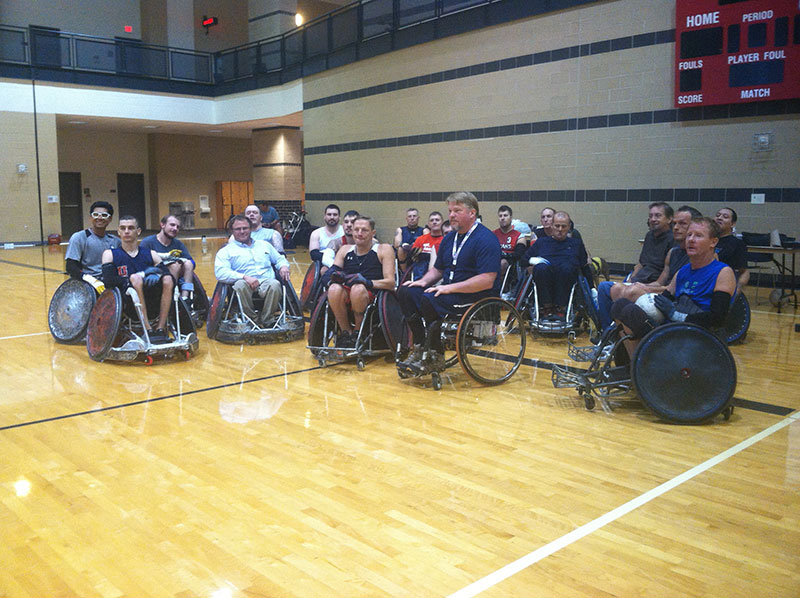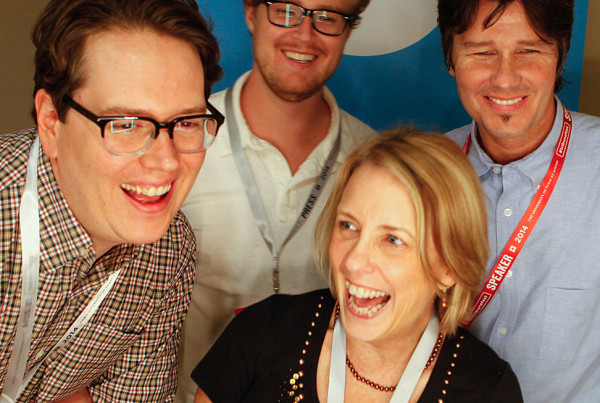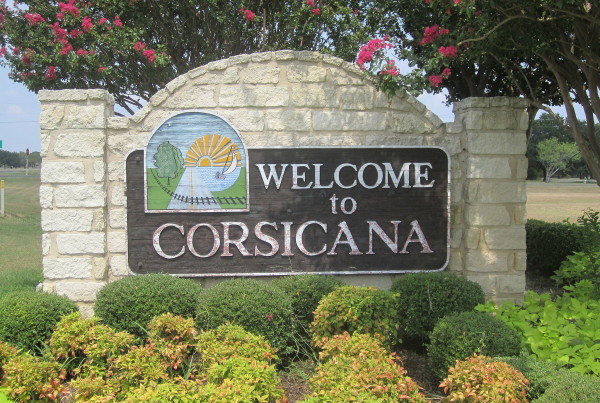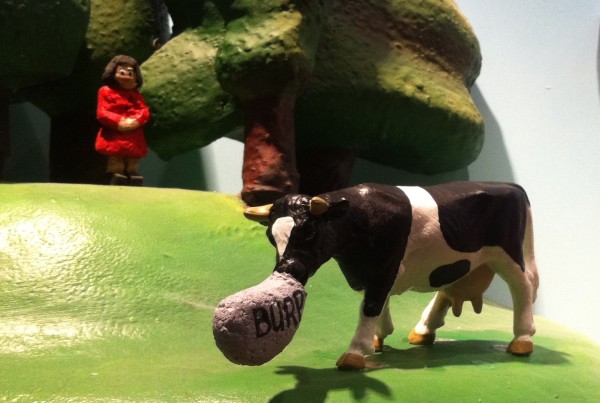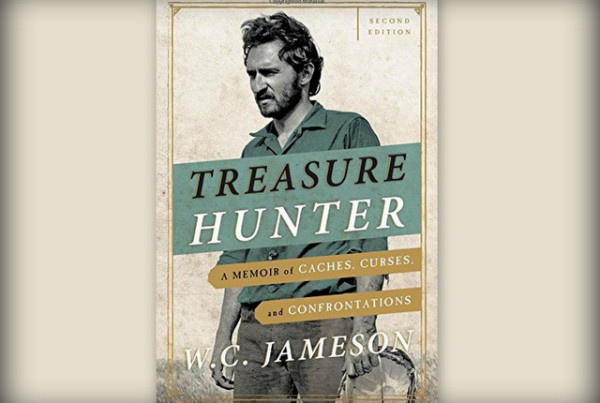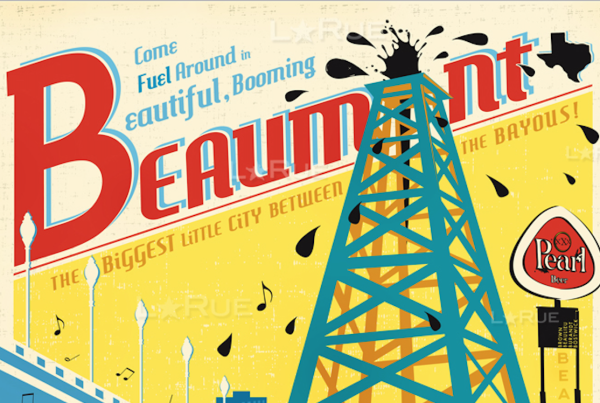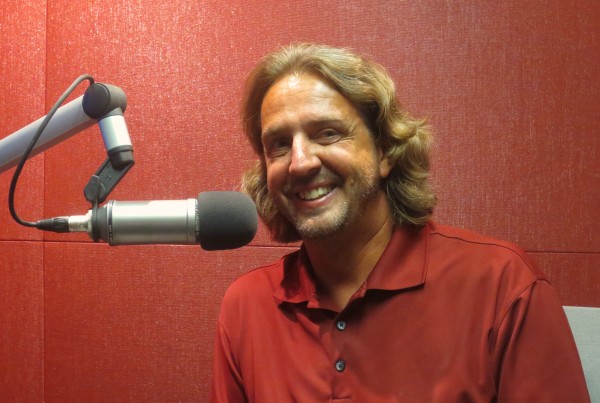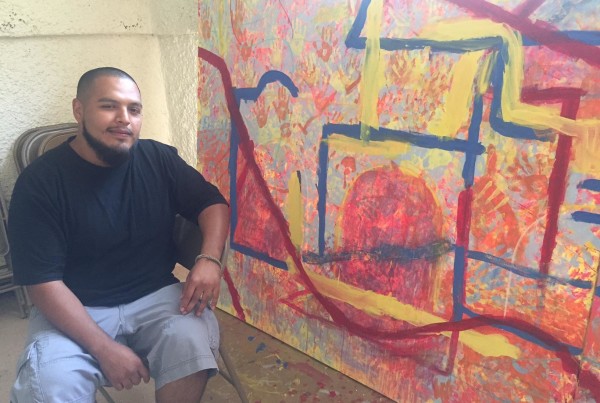This story originally appeared on Houston Public Media.
Steve Kearley zips around a basketball court at the University of Houston Campus Recreation and Wellness Center. He’s one of about 25 athletes taking part in a Wheelchair Rugby Training Camp. The players try to carry a volleyball across a goal line while the other team rams into them with their chairs.
The 43-year-old Kearley is a veteran of the sport. He’s been playing for about 25 years. Kearley says he’s always been an athlete, but when he was 17, he suffered spinal cord damage in a car accident that left him paralyzed.
“At the age of 17, we think we’re invincible, like nothing like this could ever happen,” Kearley says. “Prior to that, I didn’t know anyone in a wheelchair. I didn’t know anyone who had a catastrophic injury.”
While in recovery, Kearley met other athletes who were hospitalized with spinal cord damage. One of his new friends told the group about a sport called wheelchair rugby, and before long, they were getting a group together to play. They held their first practice on the UH campus, ramming into each other with their everyday wheelchairs.
“We didn’t know any different,” he says. “We didn’t know any better. We just knew that we wanted to play a sport where we could kind of hit each other and have some fun, and we did that.”
The chair Kearley uses now has been customized for the game. He plays a defensive position, so it has a big front bumper to cushion the blows. Each of the players is quadriplegic, meaning they have a disability in all four limbs.
Mike Cottingham is an associate professor of sport and fitness administration at UH. He’s been hosting the wheelchair rugby camp for three years now. Cottingham says the sport started as an offshoot of wheelchair basketball. Some quadriplegic athletes had trouble shooting the ball, so they developed a new game.
“They said, ‘let’s create a sport that fits our physical build and our disability, so let’s carry the ball over a goal line as opposed to shooting it, and let’s have no fouls,” Cottingham says. “‘Let’s use a lighter volleyball versus a basketball.’”
The sport is currently played in more than forty countries. During a game, there are typically four players from each team on the court. To make it a fair matchup, each player is given a classification between 0 and 3.5 ranking their physical ability. Each team’s total classifications can add up to no more than eight points.
The annual camp helps athletes get better at the game, but it’s also a learning experience for many U of H students. Senior Cameron Metzker studies sports administration. He’s also a program coordinator at the camp and says this is first time working with athletes with disabilities.
“It made you appreciate that these guys aren’t just guys who use wheelchairs or who are just are just participating in a sport, but they’re legitimate athletes,” Metzker says “Like if any of us were to hop into a chair, just like us trying to play against LeBron James or Michael Jordan, they would destroy us, these guys would.”
The camp brings together athletes of all ages and skill levels. Steve Kearley says he’s connected with younger players who are new to the game, and he can relate to what they’re going through. After his accident, he says his teammates helped him stay strong as he adjusted to the changes in his life. He learned from watching them how to do things like drive and get dressed on his own.
“It goes well beyond playing the sport of rugby,” Kearley says. “That’s a given. You’re playing a team sport. You’re active. You’re healthy. You’re enjoying each other, but well beyond that, it’s more about learning so many more life skills beyond the game itself.”
Kearley says when you’re a teenager faced with paralyzing injury, you may think life as you know it is over, but it doesn’t have to be.
“Life is still out there, but you’ve got to have the desire and the will to stay positive and work through your challenges,” he says. “Everybody faces challenges. The most important thing is how you deal with them.”
UH is set to host the wheelchair rugby national championships next year.


